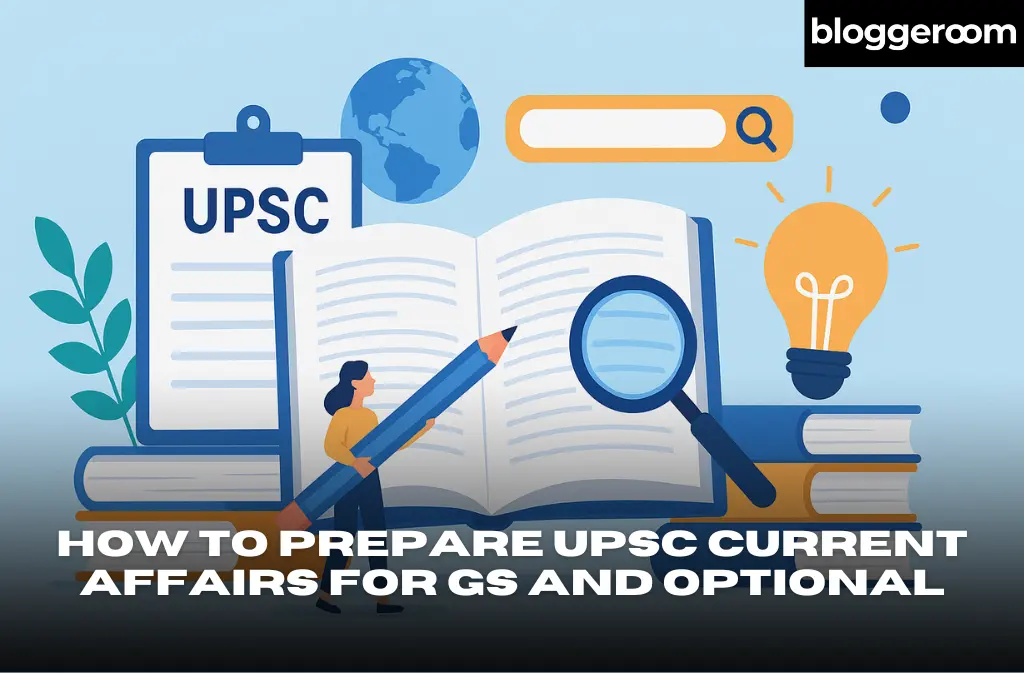How to Prepare UPSC Current Affairs for GS and Optional
Current Affairs (CA) are a crucial part of the UPSC Civil Services Exam, impacting both Prelims and Mains. However, effective preparation isn’t just about reading everything; it’s about knowing what to focus on, what to skip, and how to connect news with your syllabus. Let’s break it down step by step.
Why Current Affairs Matter
- Prelims: Around 30-40% of questions in Prelims come from current events, especially in areas like Environment, Economy, Science & Technology, and Government Policies.
- Mains: Current Affairs help in answering questions in all GS papers, essay writing, and sometimes even Ethics.
- Optional Subjects: Relevant current events can strengthen your answers, particularly in subjects like Geography, Public Administration, Anthropology, and Political Science.
In short, knowing current affairs is not optional – it’s a must. But random reading will not help; structured preparation is key.
Sources You Should Focus On
1. Newspapers
- The Hindu – For detailed coverage of national and international events.
- Indian Express – Best for editorials and in-depth analyses.
2. Government Publications
- Press Information Bureau (PIB) – Official government updates.
- Yojana & Kurukshetra – Monthly magazines on socio-economic topics.
- Economic Survey & Union Budget – Crucial for understanding policy and economic trends.
3. Monthly Current Affairs Compilations
- Magazines like Vajiram & Ravi, Vision IAS Monthly Capsules, and UnderStand UPSC summarize important events aligned with UPSC syllabus.
4. Online Platforms
- Websites like Vision IAS, Drishti IAS, and Insights on India provide concise summaries, analyses, and quizzes for practice.
What to Avoid
- Entertainment, lifestyle, or celebrity news – Irrelevant unless linked to governance or social issues.
- Excessive local news – Only note if it has national significance.
- Too many sources – Stick to 2-3 reliable sources to avoid confusion and information overload.
Smart Preparation Strategy
1. Daily Reading
- Spend 1.5-2 hours daily on newspapers and PIB releases.
- Focus on editorials, government policies, and international developments.
2. Effective Note-Making
- Make concise notes linking news to UPSC syllabus topics.
- Use digital tools for easy updates and revisions.
3. Connect Current with Static Subjects
- Relate news items to static topics in Geography, Polity, Economy, and Environment to add depth to your answers.
4. Regular Revision and Practice
- Review notes weekly and monthly.
- Attempt quizzes and mock tests to strengthen retention and exam readiness.
Key Tips for Success
- Focus on quality, not quantity – Analyze and understand news rather than reading everything.
- Stay consistent – Regular reading and note-making build a strong foundation over time.
- Integrate in answers – Always try to bring relevant current events into your Mains answers and essays.
Conclusion
By adopting a focused, strategic approach, you can turn current affairs from a daunting task into a powerful tool for UPSC success. Remember, it’s not about reading more; it’s about reading smart.







